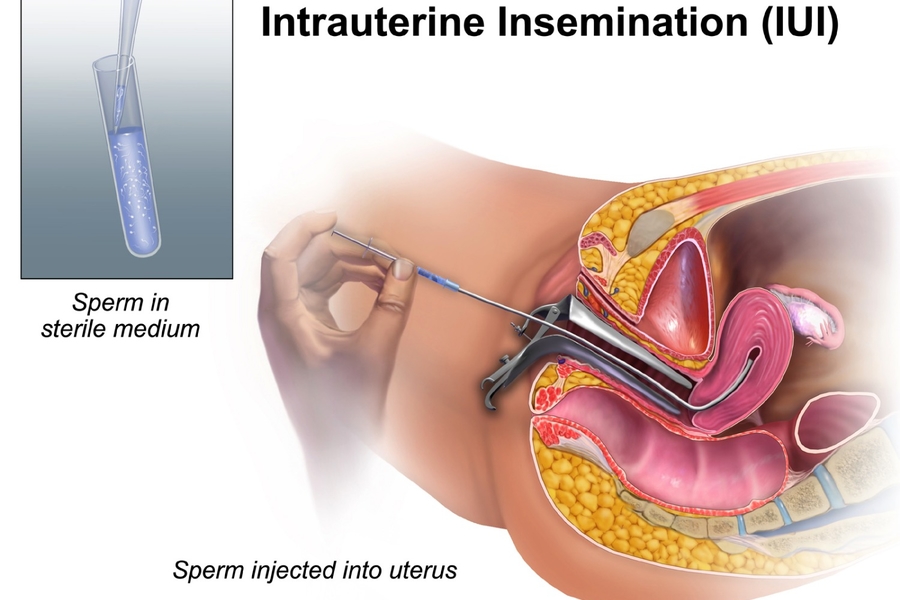
What Happens In An Intrauterine Insemination Procedure?
29 Aug 2018 | 4 min Read
Babychakra
Author | 1369 Articles
Intrauterine Insemination or IUI treatment has been a boon for childless couples dealing with the problem of infertility. The technique also referred to as “artificial insemination” is simple, less invasive, and less expensive when compared to in vitro fertilization.
The idea behind IUI is to amplify the chances of fertilization by increasing the number of sperm cells that reach the fallopian tubes. Intrauterine insemination procedure works typically in the following conditions:
• Low sperm count.
• Reduced sperm mobility.
• Unexplained infertility.
• Ejaculation dysfunction.
• Cervical scar tissue from past procedures that may be obstructing the sperm from finding a way to the uterus.
• Hostile cervical mucus.
IUI is not recommended in cases of blocked fallopian tubes, history of pelvic infections, and moderate to severe endometriosis.
Understanding How the Intrauterine Insemination Procedure Works
IUI involves transferring washed semen directly into the uterus using a thin catheter. Here’s what it entails.
Getting Ready for the IUI Procedure
Schedule a pre-IUI workup and visit the fertility specialist as this workup helps your doctor determine if you are in good health. Your hormone levels will be checked to figure out if they are in the normal range and also if your uterus can support a pregnancy.
Your doctor may decide to put you on ovulation drugs and keep a close check on you through ultrasound or blood tests. This check will confirm if you are producing healthy eggs and will give the doctor an idea of the best time to inject the sperm.
Since the doctor will inject the sperm at the right time to increase chances of conception, another test may become necessary to check if ovulation is about to take place. Expecting the onset of ovulation, IUI procedure is typically performed 24-36 hours after a surge in the LH or luteinizing hormone.
Preparing the Sperm for the Intrauterine Insemination Procedure
Your partner will need to accompany you to the clinic and provide a semen sample. In case he is not around on the day of the procedure, his semen sample can be taken before the IUI day and frozen.
The sperm sample will be washed and prepared for the procedure. If the sample is frozen, it will have to be thawed before preparation.
Washing helps in potentially removing the impurities and toxic chemicals that could be present in the sperm. This preparation process packs a high number of sperm cells so that the healthiest sperm can reach the egg and increase the rate of success. Further, washing the sperm also reduces cramping that may often occur after the IUI procedure.
Injection Sperm During IUI
Inserting sperm into the uterus is simple, painless, and takes a maximum of 1 to 2 hours.
You will need to lie down on the examination table the way you usually do for a pelvic examination. The doctor will insert a thin, small, and flexible catheter into the cervix for the prepared sperm to be injected into the uterus.
Stay calm throughout the process and even while you are waiting in the examination room. Ensure you have your partner, a friend, or a family member with you to feel comforted during the process.
Following Up After the Procedure
The doctor may call you for a checkup a week after ovulation to see how your progesterone levels are faring. An ultrasound may be performed to watch the thickness of the uterine lining to know if the intrauterine insemination procedure was successful. A two-week rest period may sometimes be recommended after the IUI procedure.
The Onus of Good Health Before IUI is on You!

Make sure you maintain healthy lifestyle habits when you are trying to conceive. Refrain from smoking, drinking, or taking medicines without the advice of your doctor if you want to boost the chances of a healthy pregnancy.
The fertility specialist may also suggest any lifestyle changes you need to make before beginning the IUI procedure.
Best of luck!
A


Related Topics for you
Suggestions offered by doctors on BabyChakra are of advisory nature i.e., for educational and informational purposes only. Content posted on, created for, or compiled by BabyChakra is not intended or designed to replace your doctor's independent judgment about any symptom, condition, or the appropriateness or risks of a procedure or treatment for a given person.
